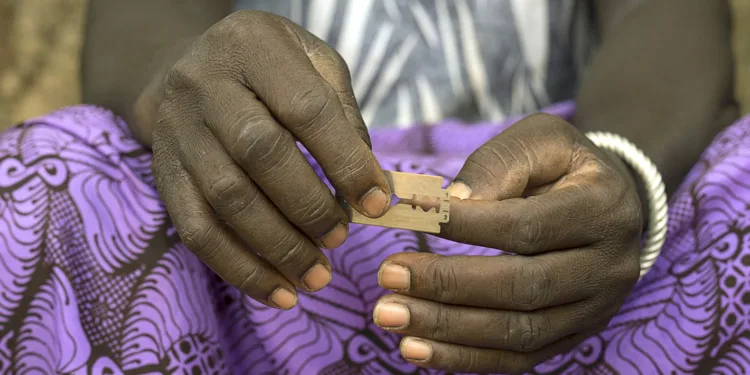Gambia is looking to reconsider the ban on female genital cutting, which was enacted in 2015 as lawmakers push forward the bill to reverse the law.
The recent legislative action in Gambia has sparked widespread global attention, positioning the nation at the forefront of a crucial debate surrounding women’s rights and health, especially the fact that it’s happening in a month set to celebrate women.
According to activists, reversing the ban can be interpreted as removing legal protections for millions of girls, raising fears that other countries could follow suit.
Out of the forty-seven lawmakers of the Gambia National Assembly present at the reading, forty-two of them voted to send a bill to reverse the ban. The bill was moved onward to a committee for consideration before a final vote.
This lawmaker’s decision, if enacted, would mark a significant departure from existing bans and regulations, potentially making Gambia the first country to reverse such measures.
The implications of this potential reversal are far-reaching, extending beyond national borders and resonating with international discussions on reproductive rights and health.
Advocates and activists worldwide have raised alarms over the potential ramifications, highlighting concerns about the impact on women’s access to essential healthcare services, including reproductive health services and family planning options.
Moreover, the move has ignited discussions within Gambia and across the globe regarding the autonomy and rights of women to make informed choices about their bodies and reproductive health.
It has also brought to the forefront broader conversations about gender equality and the role of legislative frameworks in safeguarding women’s rights.
As stakeholders, policymakers, and civil society organizations closely monitor developments in Gambia, the outcome of this legislative action could set a precedent for other African nations struggling with similar issues.
The discussions and debates surrounding this decision underscore the ongoing challenges and complexities inherent in balancing cultural norms, legal frameworks, and individual rights within the context of women’s health and rights on a global scale.
According to the United Nations, over fifty per cent of women and girls between the ages of fifteen and forty-nine in Gambia have undergone the procedure.
Also Read: Kenya Allocates $1.88m For Robust 2024 Wildlife Census
What is the implication of reserving female genital cutting on Gambian women?
According to Jaha Dukureh, founder of Safe Hands for Girls, a local group in Gambia that aims to end the practice of female genital cutting,
“If they succeed with this repeal, we know that they might come after the child marriage law and even the domestic violence law. This is not about religion but the cycle of controlling women and their bodies.”
The procedure of female genital cutting which involves partial or full removal of external genitalia can cause serious bleeding, infections, death, and childbirth complications. It’s carried out by local women in the community more often.
In 2015, Gambia’s former leader, Yahya Jammeh, banned the practice with no public explanation.
However, since the law took effect, enforcement has been weak, with only two cases prosecuted since its pronouncement seven years ago.
Several international bodies and communities have been watching the developments in Gambia closely, with many human rights organizations and foreign governments developing interests and expressing their concern over the potential reversal of the ban.
The glimmer of hope in this situation is that the decision is yet to be finalized.
However, Gambian women and international bodies that understand and support women’s rights and reproductive health hope that the bill gets rejected and women’s health is prioritized over religious bias and traditional beliefs.
According to UNICEF, thirty million women have undergone female genital cutting globally in the past eight years, most of them in Africa but some in Asia and the Middle East.










